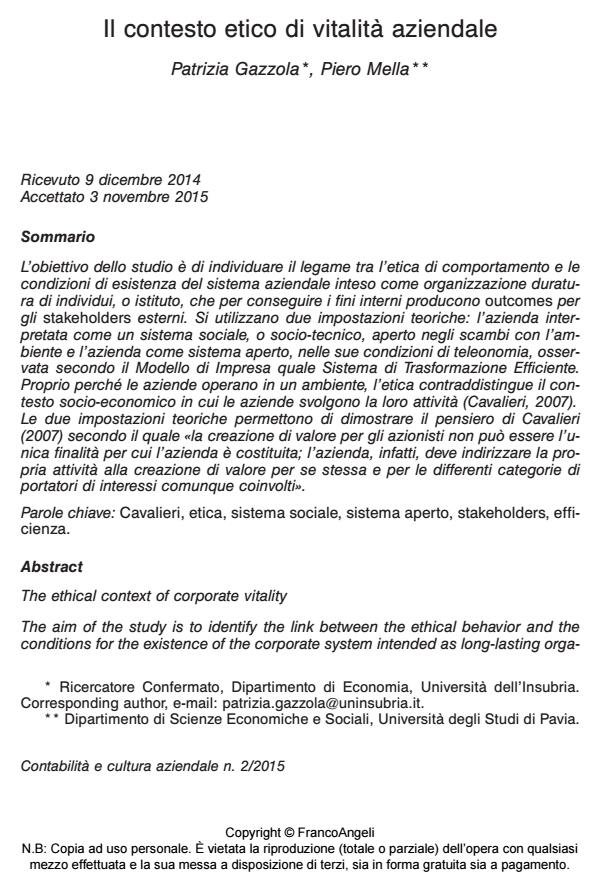Il contesto etico di vitalità aziendale
Journal title CONTABILITÀ E CULTURA AZIENDALE
Author/s Patrizia Gazzola, Piero Mella
Publishing Year 2015 Issue 2015/2
Language Italian Pages 18 P. 65-82 File size 115 KB
DOI 10.3280/CCA2015-002004
DOI is like a bar code for intellectual property: to have more infomation
click here
Below, you can see the article first page
If you want to buy this article in PDF format, you can do it, following the instructions to buy download credits

FrancoAngeli is member of Publishers International Linking Association, Inc (PILA), a not-for-profit association which run the CrossRef service enabling links to and from online scholarly content.
The ethical context of corporate vitality The aim of the study is to identify the link between the ethical behavior and the conditions for the existence of the corporate system intended as long-lasting organization composed of individuals, or as an institution, which, in order to achieve its internal objectives, produces outcomes for external stakeholders. In the research two theoretical approaches are used: the company interpreted as a social system, or socio-technical, that is open regarding exchanges with the environment and the company as an open system and under its conditions of teleonomy, is observed according to the Model of the Organization as an Efficient System of Transformation. Just because companies operate in an environment, the ethics distinguishes the socio-economic context in which they conduct their business. The two theoretical approaches demonstrate the thought of Cavalieri (2007): «the creation of shareholder value can not be the only purpose for which the company is established; the company, in fact, must direct its activities to create value for itself and for the different categories of stakeholders involved».
Keywords: Cavalieri, ethics, social system, open system, stakeholders; efficiency.
Patrizia Gazzola, Piero Mella, Il contesto etico di vitalità aziendale in "CONTABILITÀ E CULTURA AZIENDALE" 2/2015, pp 65-82, DOI: 10.3280/CCA2015-002004